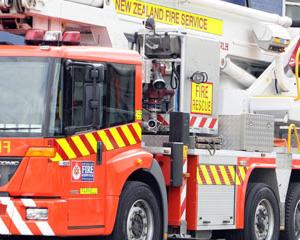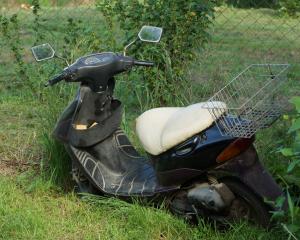
Ski-mountaineer Andreas Fransson said he "screamed till I couldn't scream no more" after climbing down a steep ice face to find the body of Magnus Kastengren last Sunday.
"From the depths of my heart I hoped that he would lie there smiling at me. I hoped I would have to do some first aid, that I would get to take care of him, I hoped - I could do something.
"But there was nothing I could do for my dear friend this morning.
"I stood over him and I screamed, I screamed till I couldn't scream no more."
Mr Fransson and his friend were in New Zealand specifically to ski Aoraki-Mt Cook.
They were back on the mountain five days after making the first continuous ski descent of its east face with Christchurch's Nick Begg, 26, and Wanaka's Tyrone Low, 28.
Writing on his blogsite (http://andreasfransson.se/), Mr Fransson, 30, said the pair set off for the peak from the plateau hut at 1.11am.
After hugging on the summit ridge, Mr Fransson took off downhill first.
He stopped at a pre-made platform on the southeast face and saw Mr Kastengren, 32, about 40m behind him.
"I looked away again and instantly heard a noise and I could not make out what it was," he said.
"A minute or so later when I had expected Magnus to be with me I turned around as to see what he was up to.
"I was expecting him looking at the view; sort out something in his backpack or whatever. But I couldn't see him. Was he joking with me?"
He put on his crampons and hiked back up the ridge.
"Then I saw it. His ice axe sat deep in to the snow, just a metre or two below where I had seen Magnus last. It came to me instantly. Magnus was gone."
He started searching for his pal, and climbed down the western side of the ridge.
When he saw a pole on a shelf 100m below, he feared the worst and tried phoning alpine rescuers.
When that didn't work, he phoned a friend in France and gave him rescue numbers, his location, and said he needed a helicopter.
Mr Fransson then started to climb down the very steep ice face to the glacier where he found Mr Kastengren's body.
"I thought of Magnus, my girlfriend and of his parents. I thought of emptiness, his friends out there and I could feel how I was falling in to a deep black hole of sensations on this ice wall on the other side of the world."
Mr Fransson said conditions for such experienced skiers were "easy".
"In fact, it was one of the easiest things we had done on the whole trip."
He didn't see how his friend came unstuck but believes that since conditions were so benign, perhaps his mate was "not paying full attention" and one ski came off.
"He must have realised too late, tried to self-arrest with his axe, lost the grip of the axe and then accelerated in to eternity. I have no further theory."
After 30 minutes, the rescue chopper arrived to fly them both out.
Mr Fransson flew home days later and on his return to Europe sat down to write his account of what happened, to express his sorrow to Mr Kastengren's friends and family, and to pay tribute to his mate who "had the incredible blend of genius, craziness, intelligence, empathy and humour of someone who lived his life to its fullest".
"Magnus was freedom personified and I owe him mountains of love for everything he has thought me," he said.
"I will remember you with love, my friend, for the rest of my life and beyond."













